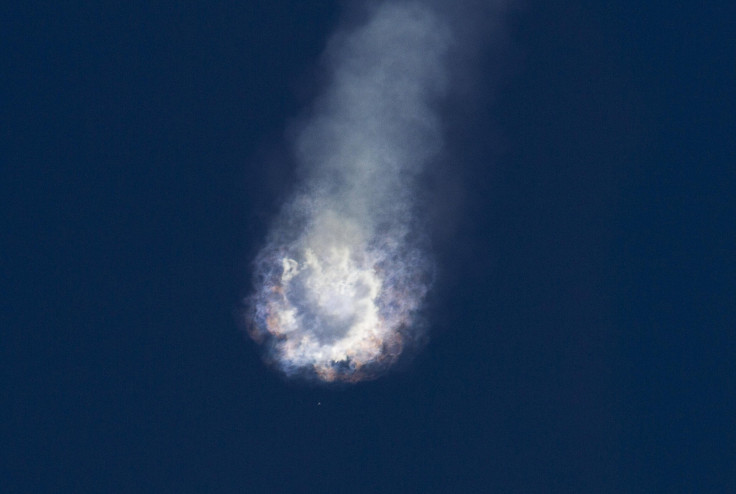Falcon Rocket Explosion Leaves SpaceX Launch Schedule In Tatters

The explosion that doomed SpaceX's flight to the International Space Station only minutes after blast off Sunday won't make a difference to the astronauts who were waiting for the Falcon 9 rocket to deliver a fresh payload. The team floating above Earth is already stocked with supplies, and is expecting a Russian Soyuz rocket to ferry another round at the end of the week.
SpaceX made international headlines over the weekend when its unmanned rocket broke apart in the sky over Cape Canaveral, Florida just a few minutes after liftoff. Over 5,200 pounds of cargo -- including a docking port, a water filtration system and a brand new spacesuit -- were meant to make their way to the ISS, only to fall in fiery bits into the Atlantic Ocean. But the Soyuz, SpaceX's Russian competition, will launch on a trip to the ISS on July 3 and NASA says the three astronauts already on the space station were prepared for the SpaceX accident.
“We're good from a food and water standpoint,” William Gerstenmaier, NASA's top spaceflight official, said at a press conference Sunday, as quoted by the Associated Press.
SpaceX CEO Elon Musk has maintained since founding the company in 2002 that one of his motivations was to reduce NASA's reliance on foreign-made rocket technology. As if the high-profile explosion wasn't enough, his long-term goal now has more competition after OneWeb agreed to a $1 billion deal that will rely on Soyuz rockets to send hundreds of small satellites into space.
The OneWeb project, which involves the Virgin Group, Airbus and now Coca-Cola, is a plan to bring theentire world online by surrounding the Earth with 648 micro-satellites before 2020. OneWebannounced last week it would infuse one billion dollars into Roscosmos, charging the Russian space agency with building 21 Soyuz launch vehicles.
“This contract is the biggest in the history of launch services,” Roscosmos Igor Komarov told the state news agency Interfax. “The choice of Soyuz rockets is a proof of high competitiveness of Russian rocket and space hardware.”
© Copyright IBTimes 2025. All rights reserved.



















